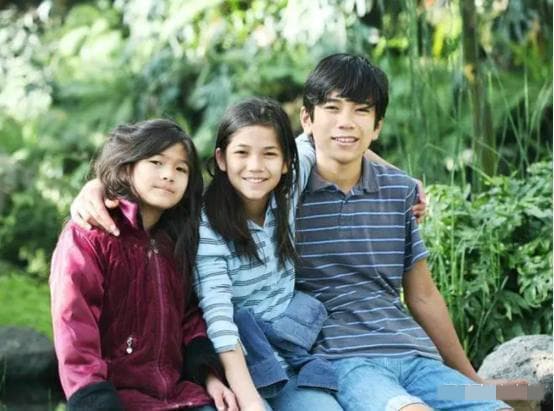While growing up under the same roof, each child in a family may experience different fates and life circumstances. Some achieve success early on, while others struggle to make a living; some are always the center of attention, while others feel neglected. Modern psychological and sociological studies have indicated that birth order can have a certain impact on one’s personality, role, and journey to adulthood.
Of course, birth order does not entirely determine one’s destiny, but it helps explain why some siblings often face more pressure and hardships.
Firstborn: The Burden of Expectations and Responsibilities
The first child is often seen as the parents’ “right-hand” person from an early age. In many traditional families, the firstborn is expected to be a role model, someone who is considerate and supportive of their younger siblings. This expectation often leads them to adopt a mindset of always having to try harder and mature faster.

Even as students, firstborns are often entrusted with significant responsibilities: babysitting, doing household chores, and even sacrificing personal opportunities for the family. As they enter adulthood, they become the family’s pillar—the first person their parents and siblings turn to in times of trouble. The weight of responsibility can sometimes leave the firstborn feeling exhausted and longing for a share of the burden.
While many firstborns are highly accomplished, there are also those who lead quiet lives, sacrificing their personal interests for the sake of their family. Their maturity is often a result of a continuous “self-disciplining” process, but the cost can sometimes be emotional and personal freedom.
Middle Child: Existing in an Invisible Space
In a family with three or more children, the middle child often finds themselves in a unique situation: not as favored as the youngest, and not carrying the same expectations as the firstborn. Psychology refers to this phenomenon as “middle child syndrome”—a feeling of being forgotten or less attended to.
Middle children often develop independence at an earlier age but are also more prone to feelings of loneliness. Due to their ambiguous position, they must assert themselves without much support. This dynamic makes them adaptable and adept at problem-solving, but it can also lead to feelings of “invisibility” within their own family.
A childhood lacking recognition can impact how they form relationships later in life. Some middle children strive relentlessly for acknowledgment, while others retreat into themselves, becoming introspective and cautious.
Youngest Child: Blessed or Dependent?
The youngest child is often considered the “luckiest,” receiving abundant love and care from both parents and older siblings. However, overindulgence can also hinder personal growth. Many youngest children grow up in an overly protected environment, lacking opportunities to develop life skills and self-reliance.
When they reach adulthood, if not guided appropriately, the youngest child may become reliant on others, struggling in competitive environments such as academics, careers, or family life. In some cases, they remain dependent on their family well into adulthood.
Of course, not all youngest children turn out this way. In many instances, thanks to the guidance and experience passed down by their older siblings, the youngest children exhibit quick learning and adaptability. However, the line between “being loved” and “being dependent” is fragile if not balanced with a proper upbringing.

Birth Order Shapes the Journey, Not the Destiny
Whether one is the firstborn, middle, or youngest child, each position in the family comes with its own set of advantages and challenges. Birth order is just one of many factors that contribute to the formation of one’s personality and influence their life path. More importantly, one’s attitude, upbringing, and personal efforts are the key determinants of success and happiness.
For parents, understanding and providing equitable education for their children is essential to minimizing emotional disparities among siblings. Sharing responsibilities, acknowledging each child’s efforts, and creating equal opportunities for growth will enable them to thrive physically and mentally.
Each child’s life journey is unique, but no one is “destined for misery.” Whether one carries the burden of responsibility, feels neglected, or is overly cherished, everyone has the chance to shape their destiny. Embracing one’s role, accepting strengths and weaknesses, and persevering through adversity—these are the keys to turning challenges into motivation and living a meaningful life.
This article is for reference only and does not determine fate. Everyone can change their destiny through their actions and wise choices.
Money Tree: Features, Meanings, and Care Tips for a Thriving Plant
Today, we’re excited to introduce you to a small yet mighty plant – the Money Tree. Also known as the Pachira Aquatica, this little tree packs a punch when it comes to its benefits and symbolism. Join us as we explore the unique features, significance, and cultivation methods of this fascinating plant.































